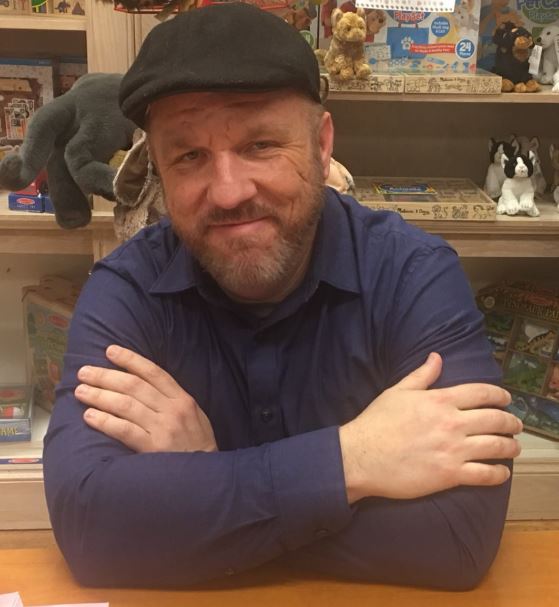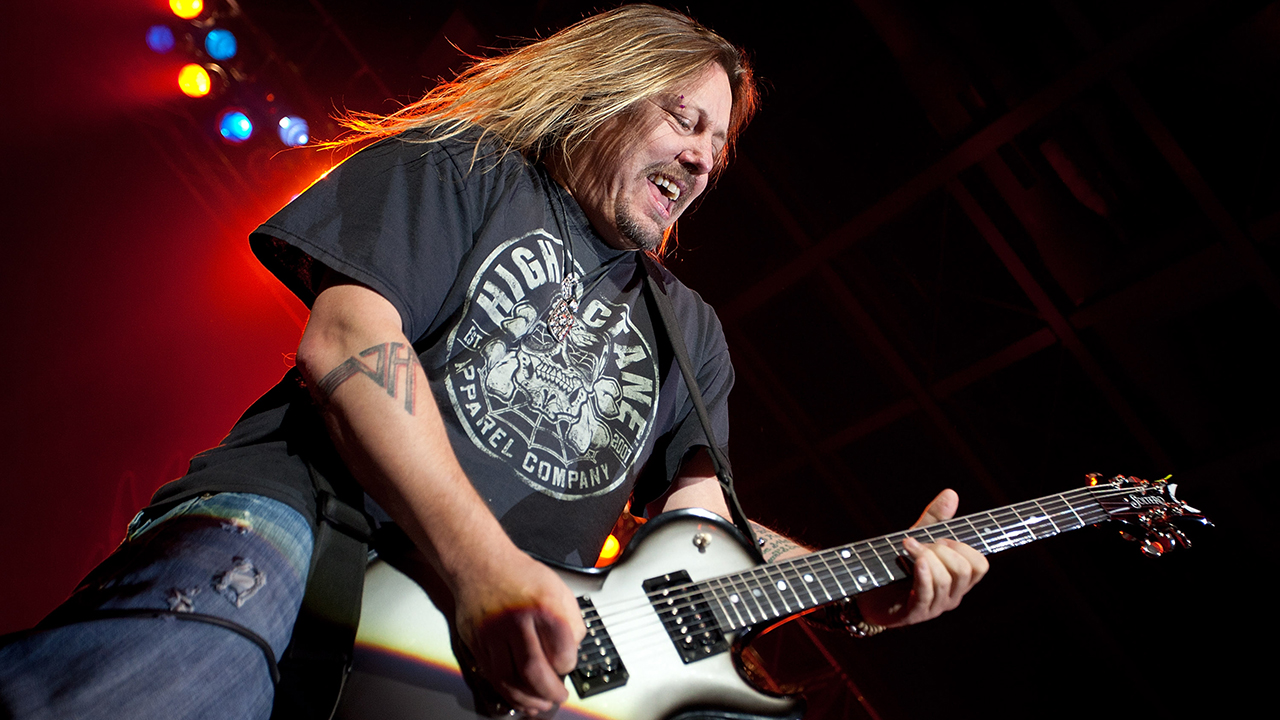Metal Method's Doug Marks Talks "Speed and Accuracy for Lead Guitar"
All the latest guitar news, interviews, lessons, reviews, deals and more, direct to your inbox!
You are now subscribed
Your newsletter sign-up was successful
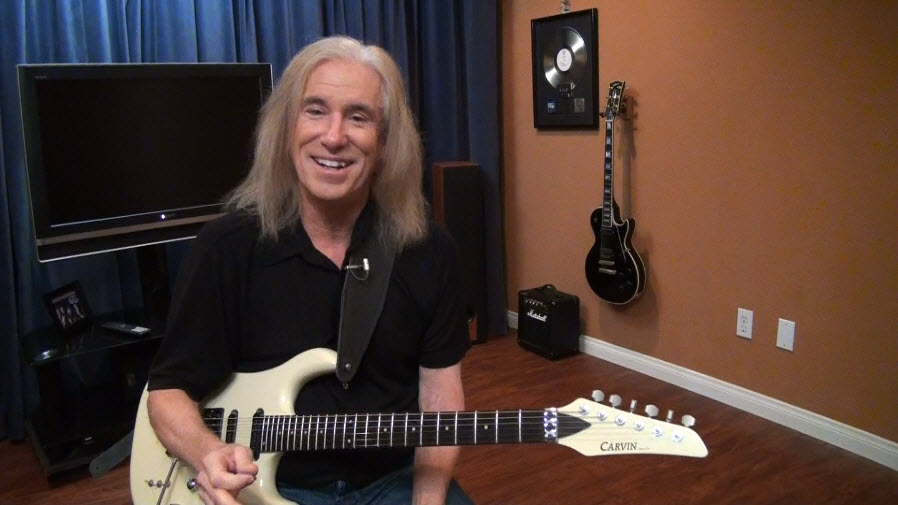
Since its beginnings in 1982, Doug Marks’ Metal Method has become one of the most successful rock guitar courses of all time.
What started out as a supplement to help him achieve his own dreams of rock stardom, Marks’ lessons have taught guitarists everything from fundamental shapes and barre chords to improvising leads and writing songs.
From his early days of snail-mail cassette tapes and booklets to today’s digital downloads, Marks continues to inspire and make thousands of guitarists better players.
I recently caught up with Marks, who told me about “Speed and Accuracy for Lead Guitar," his first new lesson in years. In the program, Marks uses his easy-going teaching style to present rapid-fire three-note-per-string patterns that increase essential skills. Marks also discussed his Hawk project from 1985, which was associated with some very familiar musicians.
GUITAR WORLD: What prompted this new program?
Last year, I started giving Skype guitar lessons. It was the first time I had given actual private lessons since I put together Metal Method. As I watched students work through the course, I was able to see first-hand one of the biggest struggles most students face: lack of precision due to a lack of focus. It was working with students through Skype that really inspired me to get to work on something new.
Tell me about "Speed and Accuracy For Lead Guitar."
All the latest guitar news, interviews, lessons, reviews, deals and more, direct to your inbox!
Ninety-nine percent of all leads are played with just three simple, fundamental shapes, and what this lesson focuses on is showing you how to play them to perfection. Learning to play these shapes perfectly will develop the muscle memory you need to make everything you play sound more precise.
What kind of practice regimen do you suggest guitarists follow?
What you practice really depends on your objective. For example, a lot of my students might have a goal to complete my basic course. If that’s the case, then half of your practice time should be spent working on the course, but the other half should be spent on things like learning your favorite songs or maybe even writing songs of your own.
It can’t all be about guitar instruction. You’ve got to have some fun with it or else you’re going to lose interest. With "Speed and Accuracy," I suggest taking 30 days to emphasize practicing the drills to see how far you can go.
What was practice like for you when you were learning to play?
I started playing in cover bands when I was in 18 and played in them throughout my 20s. Once I got serious, I started practicing a lot, and there was a time where I treated it as though it were my full-time job. But practicing back then was so much different from now. The one thing I was able to learn was how to really listen to recordings and develop a good ear. That’s something that’s missing from a lot of today’s players. Today, it’s too easy to just get tabs off the Internet or watch YouTube videos.
Can you tell me the origin of the Hawk project and some of the musicians you worked with on it?
In 1985, I found vocalist Charles Morrill and we started writing material together. At the time, he was playing in a band with his brother David called Black Night. We then recruited bassist Lonnie Miller [now Lonnie Vencent — Bullet Boys, King Kobra] and drummer Scott Travis [Judas Priest, Fight, Racer X]. This became the first lineup of Hawk, and the only lineup to ever play live. Except for me, the 1986 album had none of the original members.
What prompted you to start Metal Method?
I was living in Denver and didn’t have a band or even a job. That was when a friend of mine, who was an instructor, turned me on to teaching. I started to teach people as a way for me to make an income and after two years decided to make the move to Los Angeles.
After the move to LA, I had students back in Denver who still wanted lessons. So I started putting together some packages to send back to them. They encouraged me to keep going with mail order, and that’s what got me started. I decided to sell a few guitars, buy some ads and see what I could do. It was originally my plan to just make enough money to start a band, but after a few years it became so successful I couldn’t stop.
What satisfies you the most about Metal Method after all these years?
I hear a lot of different stories from people who took my lessons and tell me it changed their lives. Whenever I hear those stories, they’ll usually start out something like, “I know you’ve heard this before." But from my perspective, it’s very gratifying. I never get tired of hearing them.
Do you have a good story about knowing when a band just isn’t working out?
One afternoon, one of the “bands” I was in was rehearsing for a very important Roxy show in Hollywood. Some of the band members were so “partied out” from the night before that they were asleep in the equipment room. So I was there rehearsing with a roadie playing bass and another member who was in pretty rough shape too.
I remember just looking around the room and thinking, “I can’t do this anymore!” So I rented a U-Haul and started loading up the equipment. One of the band members asked me what was going on and I quoted Kenny Rogers: “You got to know when to hold ‘em. Know when to fold ‘em. Know when to walk away. Know when to run ... I’m running!” [laughs].
For more about Metal Method, visit metalmethod.com.
James Wood is a writer, musician and self-proclaimed metalhead who maintains his own website, GoJimmyGo.net. His articles and interviews are written on a variety of topics with passion and humor. You can follow him on Twitter @JimEWood.
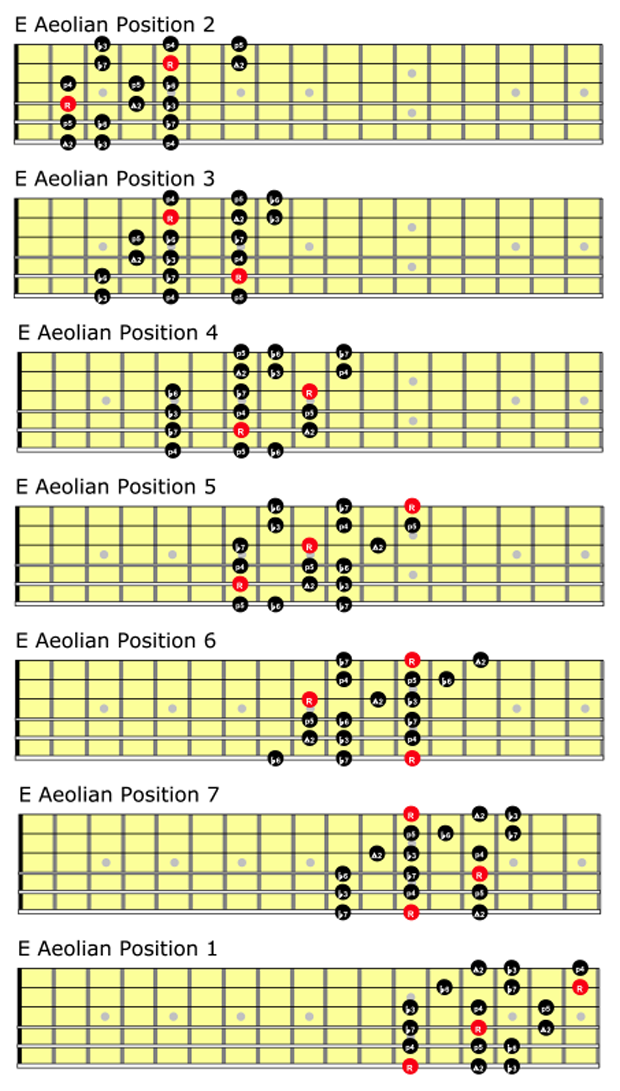
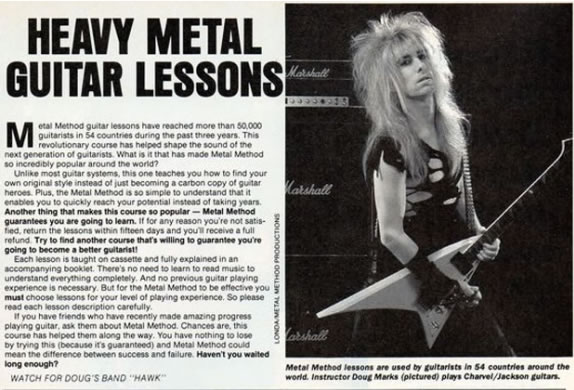
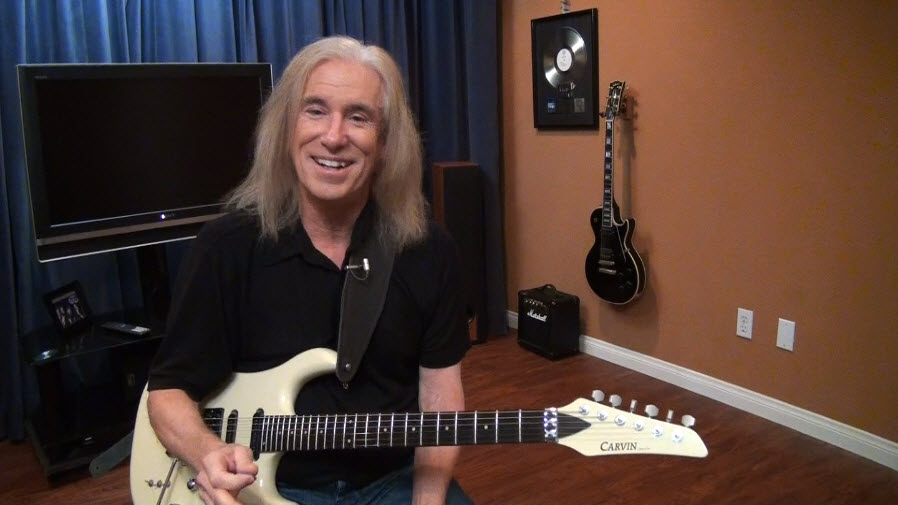
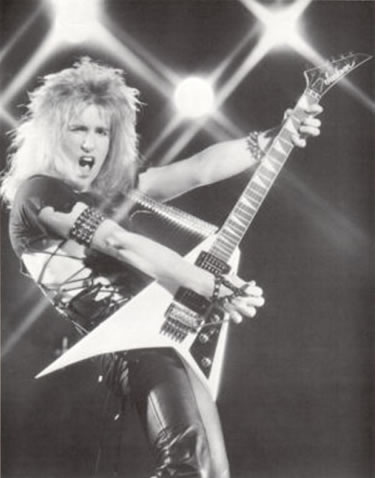
James is a guitarist and freelance writer who's interviewed some of the biggest names in music. He is the author of four books and his writing credits include work for Guitar World, AXS and Yahoo! as well as for his hometown newspaper where he writes on a variety of topics with both passion and humor. As a guitarist, he's performed everywhere from local bars and nightclubs to some of the biggest stages in front of thousands of music fans.
